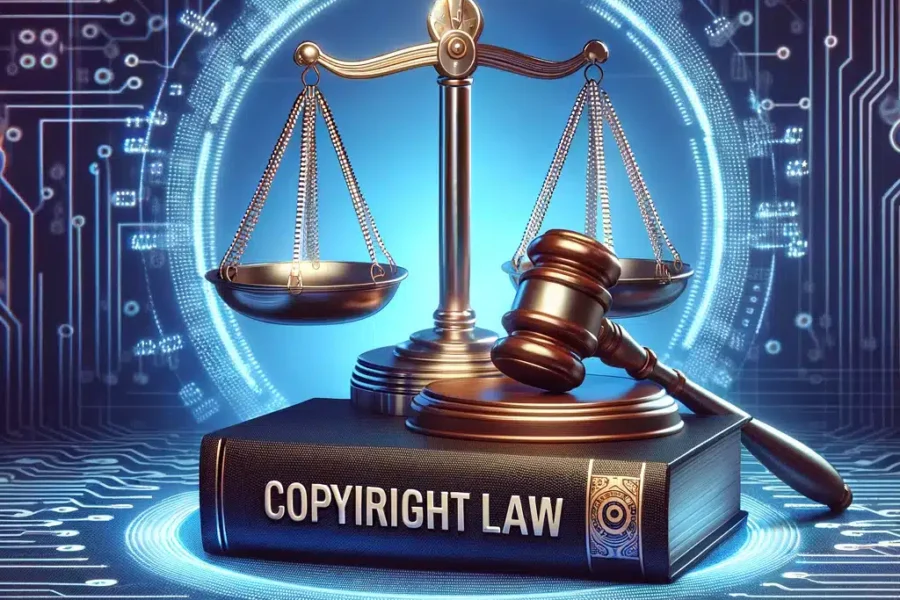The rapid advancement of Artificial Intelligence (AI) has revolutionized creative industries by enabling machines to produce music, artwork, literature, and even software code. While these developments have expanded the boundaries of creativity, they have also brought forth complex legal questions, particularly regarding copyright ownership. As AI-generated works proliferate, the legal community must grapple with the question: Who owns the copyright to works created by AI?
Understanding Copyright Law
Copyright is a form of intellectual property that grants creators exclusive rights to use and profit from their original works. Traditionally, these rights are afforded to human authors—individuals who invest intellectual and emotional labor into their creations. The Copyright Act in most jurisdictions, including India, the United States, and Europe, is premised on human creativity. It grants authors the right to control reproduction, distribution, and adaptation of their works.
But what happens when a machine creates a poem or paints a portrait without direct human involvement? Can an AI be considered an “author” under existing laws?
The Legal Vacuum Around AI Authorship
At present, no major jurisdiction recognizes AI as a legal person or entity capable of holding copyright. The prevailing view is that copyright protection requires human authorship. For instance, the U.S. Copyright Office has consistently rejected claims for works generated by non-humans. A notable example is the 2022 decision involving the AI-generated comic book “Zarya of the Dawn,” where the Copyright Office ruled that only the human-created text was eligible for protection, not the AI-generated images.
Similarly, Indian copyright law, under the Copyright Act, 1957, defines the “author” of a work in human terms, such as the creator of a literary or artistic work. There is no provision for AI-generated content, leaving such creations in a legal limbo.
Ownership Through Human Input: The Collaborative View
One workaround has been to treat AI-generated works as collaborative efforts between humans and machines. In this model, the person who inputs the data, trains the model, or curates the AI’s output may be considered the de facto author. This approach emphasizes the human involvement in directing or supervising the AI’s actions.
For instance, if an artist uses a generative AI tool like DALL·E or Midjourney with specific prompts and makes substantial edits, the final image may qualify as a human-authored work. The copyright in such cases is often granted to the human who exercised creative control over the process, rather than to the software developer or the AI itself.
The Case for Developers’ Rights
Another perspective argues that copyright should belong to the developers of the AI system, as they created the tool that enabled the work to be produced. However, this view is controversial because developers may not have any involvement in the specific output generated. Assigning ownership to developers could also discourage widespread AI usage by end-users.
Moreover, developers often include licensing terms that clarify ownership rights. Many generative AI platforms specify in their Terms of Service that users retain ownership of outputs, provided they comply with the platform’s guidelines. These contractual arrangements, while helpful, do not resolve the larger issue of how the law itself treats such works.
International Developments and Proposed Reforms
Globally, lawmakers are beginning to address the copyright challenges posed by AI. The UK had, until recently, an exception that allowed copyright in computer-generated works to be owned by the person “making the arrangements necessary for the creation of the work.” However, this provision is now under review.
The European Union, under its broader AI regulation proposals, has signaled the need to rethink intellectual property laws in the context of AI. Meanwhile, WIPO (World Intellectual Property Organization) has initiated public consultations on the issue, recognizing the urgent need for clarity.
Ethical and Philosophical Concerns
Beyond legality, the issue of AI authorship raises ethical questions. Should machines be granted rights traditionally reserved for humans? If not, are we undervaluing the originality and usefulness of machine-generated content? Conversely, granting AI copyright might dilute the meaning of authorship and undermine human creators.
These concerns are especially pressing in creative industries where AI-generated works compete with human artists, musicians, and writers. A balance must be struck between innovation and protection of human creativity.
Conclusion: A Call for Clear Legal Frameworks
The current state of copyright law does not adequately address the complexities of AI-generated content. While some jurisdictions treat human collaborators or developers as rights-holders, there is no global consensus. As AI tools become increasingly autonomous, the line between human-authored and machine-authored work will continue to blur.
To ensure legal certainty and encourage responsible use of AI in creative fields, lawmakers must consider new legal categories or reforms that reflect the realities of the digital age. Whether this means granting limited rights to AI-generated works, creating a new class of “machine works,” or refining the definition of authorship, the conversation is no longer speculative—it’s necessary.
contributed by- Tulip Raghav (intern)

